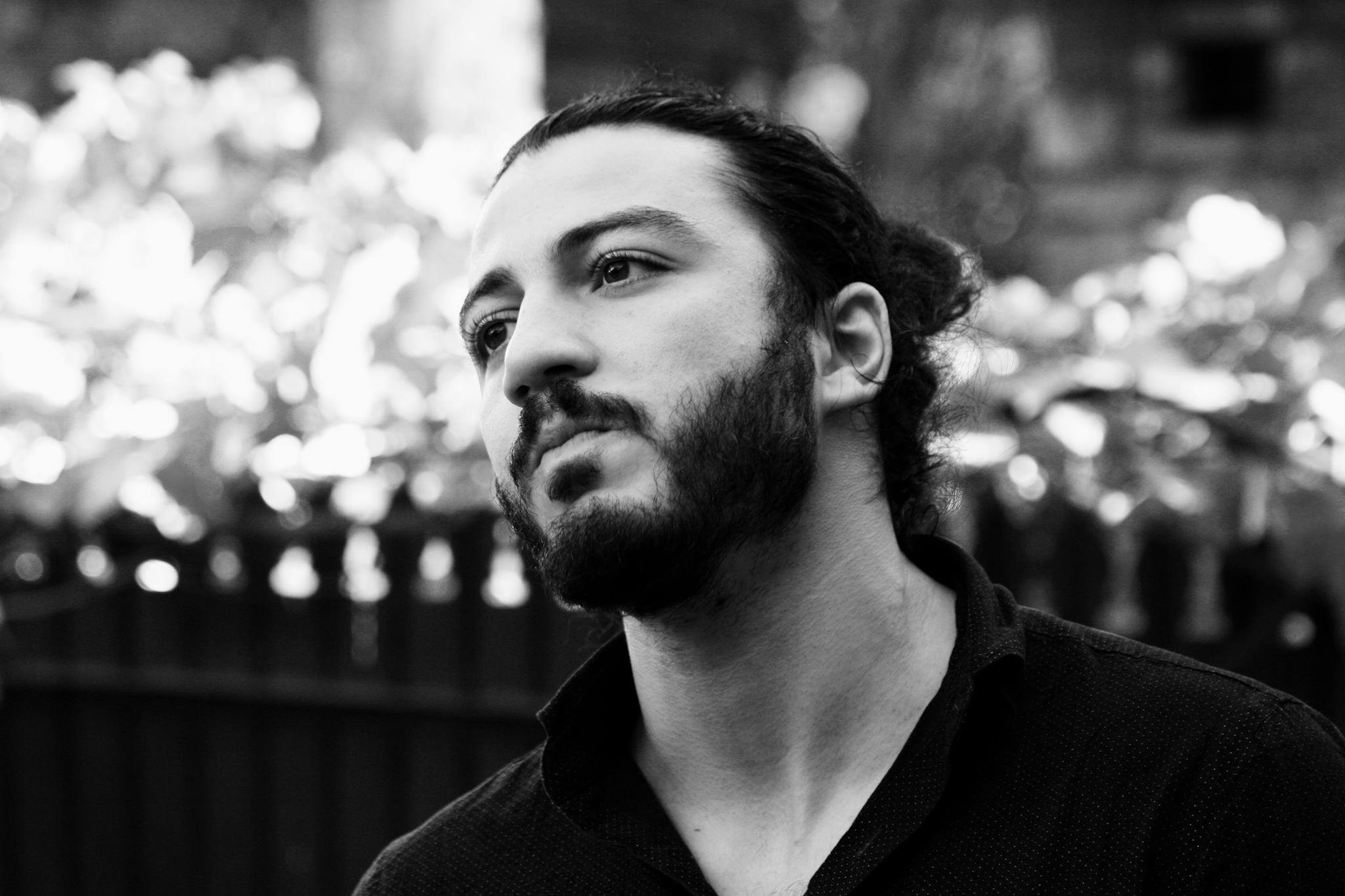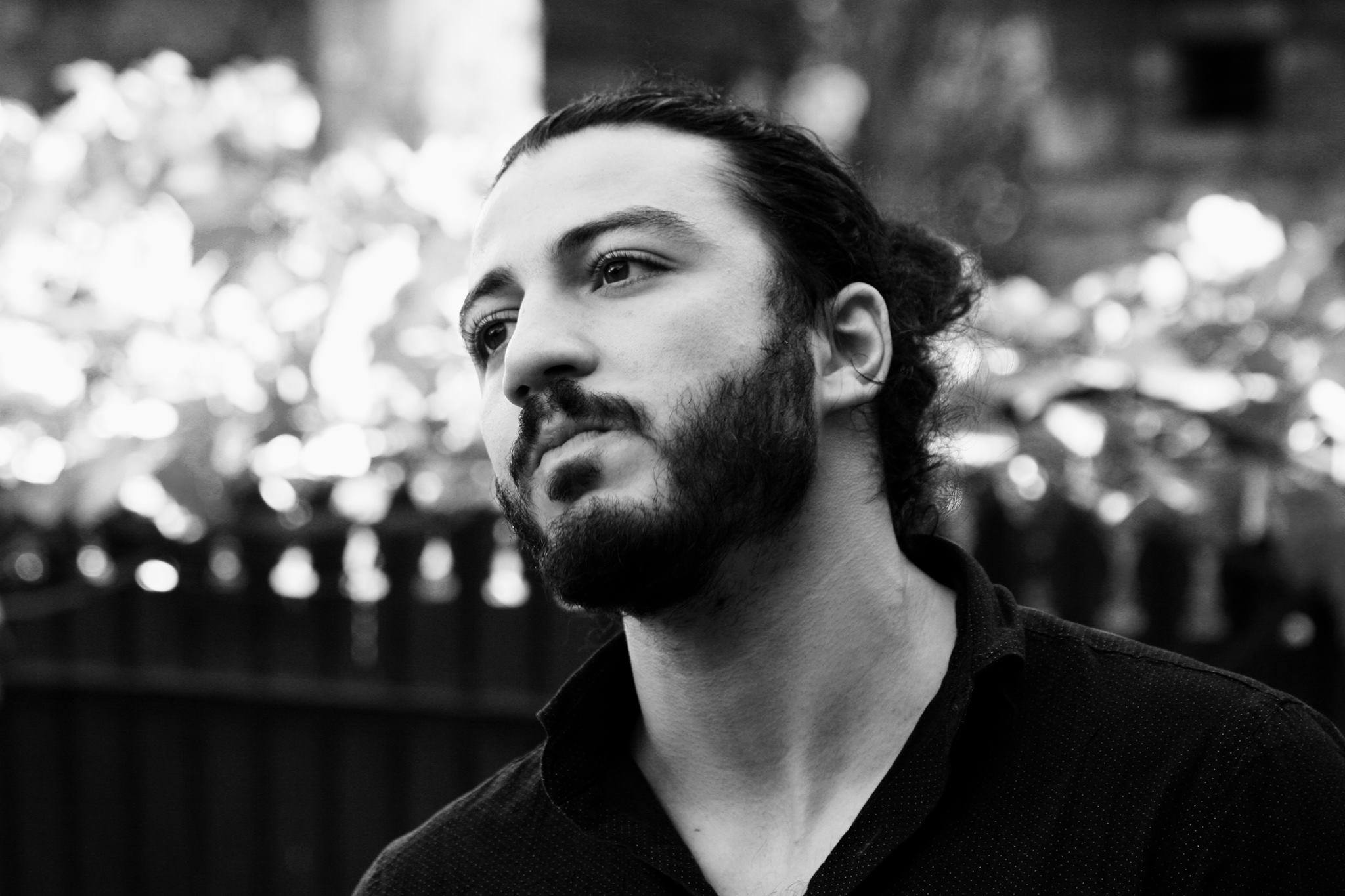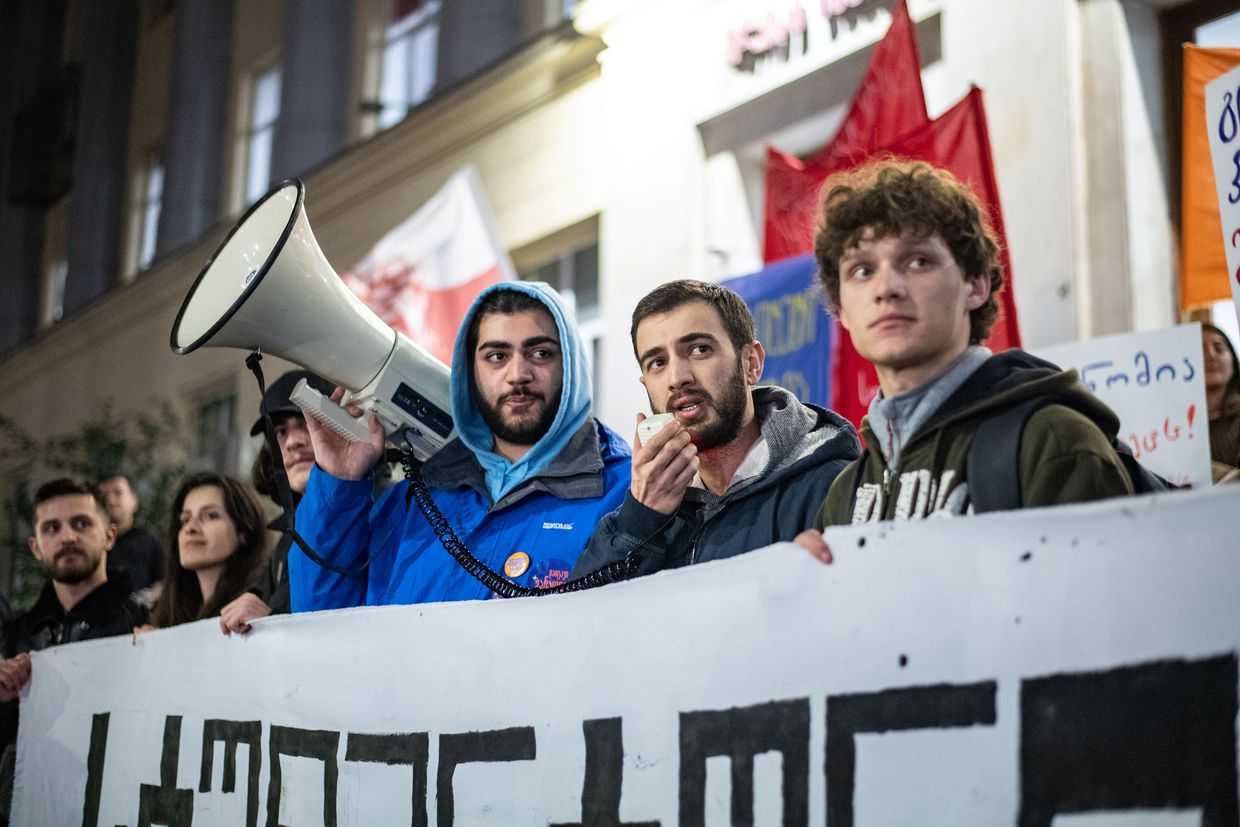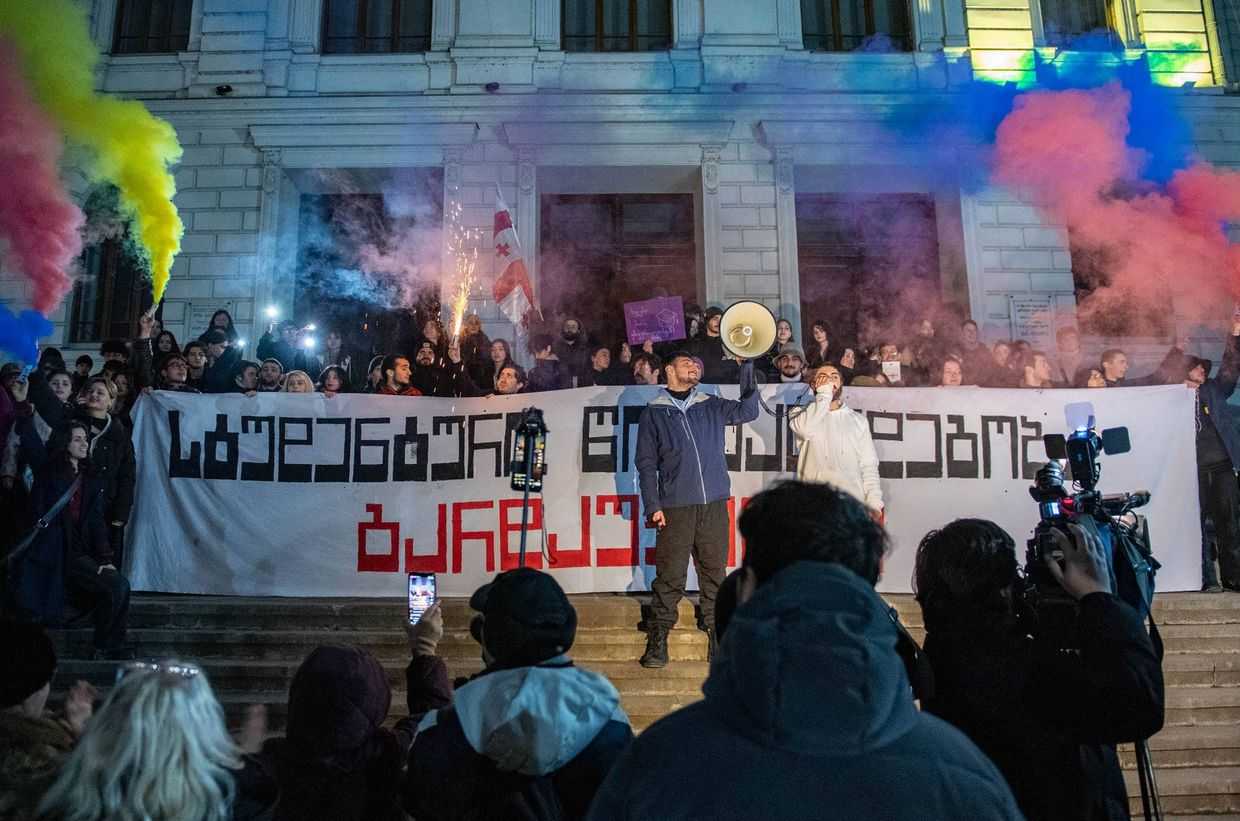

Two men accused of murdering 25-year-old human rights activist Vitali Safarov will remain in custody, Tbilisi City Court has ruled as dozens of people held a peaceful rally outside the court in support of Safarov.
Safarov was killed on the morning of 30 September after a fight outside Warszawa Bar, near Tbilisi’s Freedom Square. Police arrested two suspects the same morning and said they had retrieved the knife that was used as the murder weapon.
The two defendants, Avtandil Kandelakishvili, 21, and Giorgi Sokhadze, 24, were initially arrested on charges of intentional murder. However, aggravating circumstances were added to the charges after calls by rights groups to investigate the case as a hate-motivated crime.
The Tbilisi-based Human Rights Centre (HRIDC) and the Centre for Participation and Development (CPD), where Safarov worked, said the fatal stabbing could have been based on ‘xenophobic grounds’.
In a statement on 11 October, the HRIDC said that both men arrested belonged to a neo-Nazi organisation. They suggested one of the reasons behind Safarov’s death could be that he had communicated with patrons of the bar in a foreign language.
Safarov, a Georgian with Jewish and Yazidi roots, worked as a programme manager at the CPD’s ‘tolerance camps’, tackling xenophobia among young people.
He had previously worked for the Tbilisi Shelter Initiative, which provided a safe space for at-risk activists in the region.
On 31 October, the Prosecutor’s Office said that they had changed the charges to intentional murder with aggravating circumstances ‘due to racial, religious, national or ethnic intolerance’, which is punishable by 13–17 years imprisonment.
Demands to release defendants on bail
On 16 April, dozens gathered in front of Tbilisi City Court against hate-motivated crimes in a silent rally.
Activists held posters saying ‘No to Hate’ and ‘No to Racism’ at the demonstration.
They demanded that ‘the members of the neo-Nazi group who committed this crime be punished’.
Advocates of both defendants claimed their clients were not members of any neo-Nazi groups.
Zurab Begiashvili, representing Avtandil Kandelakishvili, told journalists outside the court following the hearing that his client was innocent and that he did not have a conflict with Safarov on the grounds of ‘Nazism or nationality’.
‘This kind of behaviour is not suitable for Georgians. Kandelakishvili is not a member of a Nazi organisation and, moreover, did not act on these grounds. These allegations are absurd, and are being used to blind certain groups’, Begiashvili said.
In the courtroom, the defence requested that the defendants be released on ₾1,000 ($375) and ₾10,000 ($3,700) bail respectively, however, both were turned down by the judge.
The trial will begin on 24 April.
Hate crimes in Georgia
According to a January report by the Human Rights Department at the Interior Ministry, Georgian authorities criminally prosecuted 44 individuals for hate crimes in 2017.
The report said that in 2018, the department had identified hate-based motivations in 95 criminal cases.
In May 2017, Interior Minister Giorgi Gakharia admitted that the Georgian legislation was ‘not very effective [at] fighting against aggressive and fascist-leaning groups’, but vowed to propose legal amendments in parliament if ‘the authorities see it is necessary’. No initiatives have so far followed.









